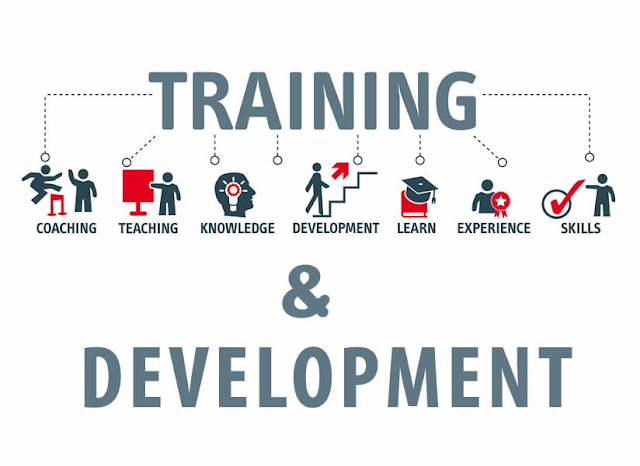PERFORMANCE MANAGEMENT PROCESS IN HRM
WHAT IS PERFORMANCE MANAGEMENT
The methodical procedure that involves setting precise goals for work, keeping an eye on staff performance, giving feedback, assessing outcomes, and encouraging ongoing development. It entails matching team and individual performance to the aims and objectives of the organization in order to increase organizational effectiveness and accomplish desired results. carla tardi,(2023)
Key Components in Performance Management
Goal Setting:
- The performance management process typically begins with setting clear, specific, and measurable performance goals and objectives for individual employees or teams.
- Goals should be aligned with the organization's strategic priorities and provide employees with a clear understanding of what is expected of them.
Performance Planning:
- Once goals are established, managers and employees collaborate to create individual performance plans outlining the actions, milestones, and timelines needed to achieve these goals.
- Performance plans may include development objectives, training needs, and performance metrics to track progress over time.
Ongoing Performance Monitoring:
- Throughout the performance period, managers monitor employees' progress towards their goals and provide regular feedback on their performance.
- Monitoring may involve regular check-ins, one-on-one meetings, performance reviews, and informal feedback sessions to assess performance and address any issues or concerns.
Performance Evaluation:
- At the end of the performance period or as part of regular performance reviews, managers conduct formal evaluations of employees' performance against their goals and objectives.
- Evaluations may involve assessing employees' accomplishments, strengths, areas for improvement, and overall contributions to the organization.
- Performance evaluations may be conducted using various assessment methods, such as self-assessments, peer reviews, 360-degree feedback, and objective metrics.
Feedback and Coaching:
- Feedback is a critical component of the performance management process, providing employees with information on their performance strengths, weaknesses, and areas for development.
- Managers should provide timely, constructive feedback to employees, acknowledging their achievements, addressing performance gaps, and offering guidance on how to improve.
- Coaching and mentoring may be provided to help employees develop their skills, overcome challenges, and achieve their performance goals.
Performance Recognition and Rewards:
- Employees who demonstrate exceptional performance should be recognized and rewarded for their contributions to the organization.
- Rewards and recognition may take various forms, such as bonuses, promotions, merit increases, public acknowledgment, and career development opportunities.
- Recognizing and rewarding high performers helps motivate employees, reinforce desired behaviors, and foster a culture of excellence within the organization.
Performance Improvement:
- For employees who are not meeting performance expectations, performance management involves identifying the root causes of performance issues and developing strategies for improvement.
- Performance improvement plans (PIPs) may be implemented to outline specific actions, targets, and timelines for addressing performance deficiencies and supporting employee development.
How Monitoring and Performance Are Conducted
An official performance management program facilitates communication between managers and staff regarding goals, expectations, and career advancement, including how a worker's contributions fit into the larger company vision. It assists in allocating the monies included in the performance budget of the organization. Performance management, in general, sees workers within the framework of the larger workplace system. Though it is thought to be unachievable, in theory, businesses aim for the absolute performance level.
Conventional tools used in performance-management programs include goal-setting and measurement, as well as milestone-setting. They also seek to establish methods for measuring effective individual performance and to describe what such performance looks like. However, performance management transforms each conversation with an employee into a learning opportunity rather than relying on the conventional paradigm of year-end reviews.
The Benefits of performance management
Supporters of performance management argue that in addition to helping businesses achieve their objectives, it also improves employee satisfaction at work and increases staff retention. Employees, for instance, frequently experience surprise when they get unfavorable annual performance assessments. Although annual reviews may also be a part of performance management, managers' continuous input throughout the year ought to prevent unwanted shocks.
Effective performance management necessitates "managers to think of themselves as coaches, not bosses," as stated by the polling company Gallup, which carries out global surveys on workplace-related topics. Furthermore, manager-employee interactions feel more motivating, interesting, and fulfilling when managers conduct timely, performance-related talks that embody this idea than when annual reviews do not."
conclusion
Individuals vary in their aptitudes and skills. When two different persons work on the same task, there will always be some variation in the quantity and quality of the work. It is therefore essential to understand each employee's skills, capabilities, and relative merit and worth for the business through performance management and performance appraisals in order for the organization to advance in the right direction through employee dedication and excellence in performance.
Reference
carla tardi,(2023),Performance Management: Definition, Purpose, Steps & Benefits, investopedia(online)
https://www.investopedia.com/terms/p/performance-management.asp
https://www.investopedia.com/terms/p/performance-management.asp
adam hayes (2023),Performance Appraisals in the Workplace: Use, Types, Criticisms,investopedia (online)
https://www.investopedia.com/what-is-a-performance-appraisal-4586834
thedora stanciu (2022),The Components of the Performance Management Process, mirror team jounels,
(online)
https://mirro.io/blog/components-performance-management/



Performance management in HRM involves setting objectives, evaluating progress, and providing feedback to enhance employee effectiveness. By aligning individual goals with organizational targets, it fosters accountability, development, and overall organizational success.
ReplyDeleteThis comment has been removed by the author.
ReplyDeletePerformance management is crucial for optimizing employee performance and achieving organizational goals. By setting clear expectations, providing feedback, and supporting development, companies can drive success and foster a culture of continuous improvement.
ReplyDelete